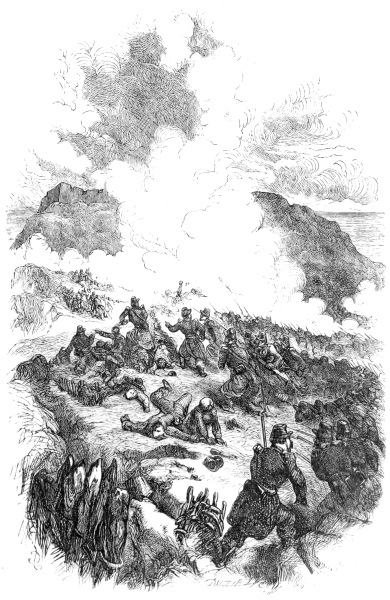
THE
GREAT SIEGES OF HISTORY.
BY
WILLIAM ROBSON,
AUTHOR OF “THE LIFE OF RICHELIEU,” ETC.
Illustrated by John Gilbert.
THE FOURTH THOUSAND.
LONDON:
G. ROUTLEDGE & CO. FARRINGDON STREET;
NEW YORK: 18, BEEKMAN STREET.1856.
iii
PREFACE.
Late events have proved that, notwithstanding thedreams of visionary philosophers and the hopes of philanthropists,the Millennium is not yet arrived; the lambcannot yet lie down in peace with the lion. Science hasperformed miracles to procure comforts and luxuries forman; literature and art have exerted their genial influenceover his life and manners; and commerce has broughtnations, geographically remote from each other, into themost intimate relations. And yet the roots of all evils—interests,passions, and ambitions—are as actively alive inpromoting discord, as at the darkest periods of the world’shistory.
Encouraged by the evident advantages arising from theabsence of war, a kindly but enthusiastic body of enlightenedmen came forth to preach a new description of crusade,a crusade for universal peace; and yet, years after thepromulgation of this holy mission, a nation, by far thelargest in geographical extent, thinks its time arrived,throws off the mask, and boldly avows that, while otherivpeoples have been fostering plans of universal amity andbrotherhood, it has been ever insidiously working out itsschemes for the subjugation of all the rest to its arbitrarypower.
The way in which Great Britain has met this, has beenattended by a lesson which I trust she will never forget.It has proved to her, that if she is anxious to maintain theproud station which her patriots, sages, warriors, and merchantshave raised her to, she must not only be a producer,a manufacturer, and a carrier; she must not only be intelligentand wealthy; she must be physically as well as morallystrong, able to assert her own rights and support those ofthe weak and oppressed. Most lamentably has she sufferedfrom not attending to this. Like another Quixote, she hasrushed upon the enemy of humanity with the nobleness ofher nature, unprovided with everything but wealth, courage,and faith in a good cause.
In his eloquent history of the Peninsular war, Sir WilliamNapier had pronounced an emphatic opinion upon the statein which England was ever found at the commencement of anew contest; that her parsimony always left her bare ofmatériel, men, and leaders. To the neglect of this warningfrom a practical soldier, may we attribute most of our disastersin the Crimea. We have gone headlong into a gameof which we seem to have known neither the moves nor thechances. Our generation had little more real knowledge ofwar, than schoolboys who fight with wooden swords undervthe standard of a pocket-handkerchief tied to a stick. It isnot necessary for England to be essentially a warlike nation;it is not her part in the world’s progress; she is far more acreator than a destroyer; but she must ever preserve aconsciousness